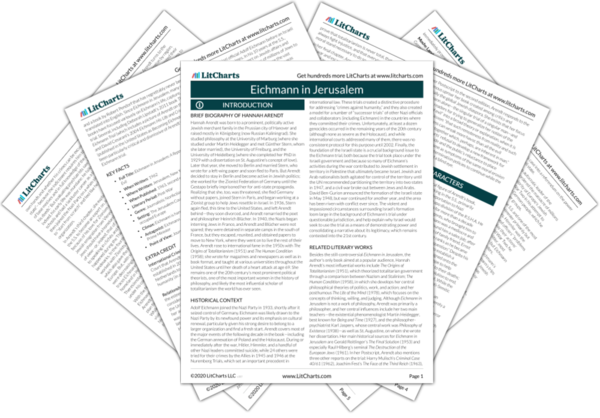Nuremberg Laws Quotes in Eichmann in Jerusalem
In the eyes of the Jews, thinking exclusively in terms of their own history, the catastrophe that had befallen them under Hitler, in which a third of the people perished, appeared not as the most recent of crimes, the unprecedented crime of genocide, but, on the contrary, as the oldest crime they knew and remembered. This misunderstanding, almost inevitable if we consider not only the facts of Jewish history but also, and more important, the current Jewish historical self-understanding, is actually at the root of all the failures and shortcomings of the Jerusalem trial. None of the participants ever arrived at a clear understanding of the actual horror of Auschwitz, which is of a different nature from all the atrocities of the past, because it appeared to prosecution and judges alike as not much more than the most horrible pogrom in Jewish history. They therefore believed that a direct line existed from the early anti-Semitism of the Nazi Party to the Nuremberg Laws and from there to the expulsion of Jews from the Reich and, finally, to the gas chambers. Politically and legally, however, these were “crimes” different not only in degree of seriousness but in essence.

Unlock explanations and citation info for this and every other Eichmann in Jerusalem quote.
Plus so much more...
Get LitCharts A+









